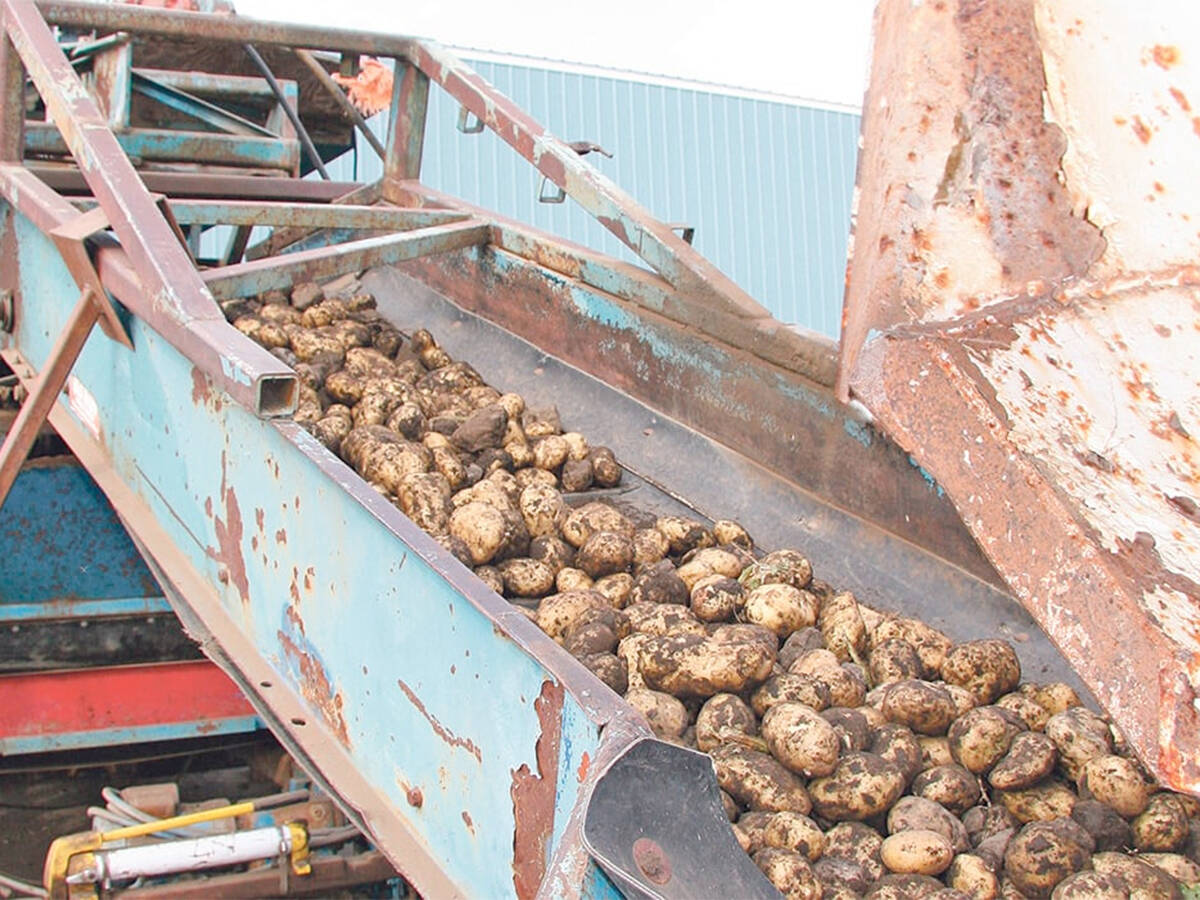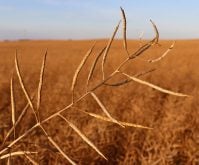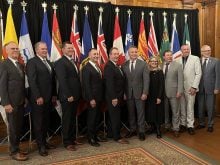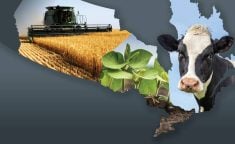Consultations on major agricultural issues, including some carryovers from the previous government, were still plugging away as Manitoba Agriculture Minister Ron Kostyshyn wrapped up 2023.
Kostyshyn looked back on the year during a Dec. 19 interview with the Manitoba Co-operator.
Why it matters: The Dauphin region MLA, elected Oct. 3, regained his old post as agriculture minister when the NDP formed its government this fall. He previously served in the post from 2012 to 2016.
Read Also

Potato growers beware new PVY strains
Newer strains of potato virus Y (PVY) are creating headaches for potato farms in Eastern Canada, and Manitoba farmers should pay attention
Kostyshyn represents the only highly agricultural district to go orange when Manitoba voted this fall.
Asked if the new government would continue to phase out the education property tax, Kostyshyn said the NDP had maintained the current 50 per cent rebate so far, but isn’t ready to commit to further rollbacks.
“That’s an ongoing discussion,” he said.
The previous Progressive Conservative government had pledged to gradually phase out the education property tax, beginning with a 25 per cent rebate for residential and farm properties in 2021, and a 10 per cent rebate for other properties, such as commercial or industrial land.
The move was praised by agriculture groups including Keystone Agricultural Producers at the time.
Kostyshyn pointed to a projected $1.6-billion deficit in provincial coffers as a reason the rollback needs review. He indicated the government hopes, at minimum, to maintain the 50 per cent rebate.
Crown lands
Announcements are forthcoming regarding the troubled agricultural Crown land system, Kostyshyn said. Several initiatives were promised for the New Year.
On Jan. 2, 2024, the province announced that changes to the Crown lands system were in force. The changes include a five-year term extension for leaseholders with a forage management plan, changes to how land improvements are valued and forage capacity is calculated, the ability for legacy leaseholders to nominate the next leaseholder and the ability for 15-year leaseholders to transfer the remainder of their term to any other eligible party.
The announcement echoes changes approved under the previous government under then-ag minister Derek Johnson in late summer 2023.
Kostyshyn, whose region sits well within cattle country, ran on NDP promises to undo many changes the previous government had made to the agricultural Crown land system.
Those changes, which included changes to lease terms, a higher rental formula and the loss of a measure that had previously allowed ranchers to transfer lease rights with the sale of a ranch, proved highly unpopular with forage leaseholders, who at one point considered a legal challenge to the system.
A number of further changes were met with wary producer approval during the last year of the P.C.s’ tenure after the file was re-opened in 2022. The saga is still a sore point for many ranchers in Manitoba’s Parkland and Interlake.
Since assuming his post, Kostyshyn has signaled a desire to move slowly and deliberately on the matter.
“What we are doing is basically starting from ground zero and reviewing the present Crown land lease legislation that was brought in by the previous government,” he told the Co-operator in November.
The NDP has committed to extending a rent reduction introduced by the P.C.s earlier in the year. The previous government had laid out a three-year graduated rent reduction, in which 2023 rates were cut by half of the regular rate, 2024 rates were set to rise to 33 per cent of the regular rate and 2025 rates would be set at 15 per cent below the regular rate.
The NDP government announced abandonment of that schedule and set 2024 rents at 55 per cent below the formula’s rate.
The Manitoba Crown Land Leaseholders Association welcomed the announcement, telling the Co-operator in early December that, “This is definitely a positive first step in helping to correct a lot of the problems created with the devastating changes that were implemented in 2019.”
Beyond next year, however, Kostyshyn was non-committal.
“We continue to have that conversation at the cabinet table and with the department of finance,” he said, referring to the provincial deficit.
Business risk management
Kostyshyn said his department has talked with federal officials about agriculture’s business risk management programs and shared ideas, but had nothing new to report.
His mandate letter calls on him to “work with the federal government to ensure strong AgriRecovery and AgriStability supports to help producers make ends meet while they navigate the impacts of climate change.”
Manitoba cattle farmers have long asked for business risk management options better tailored to livestock production.
Kostyshyn reiterated that he understands the importance of BRM programs from personal experience as a farmer. He ran a family mixed farm for four decades.
Valued-added processing
One of the previous government’s flagship programs was its Manitoba Protein Advantage strategy, which proposed to make Manitoba the ‘Silicon Valley’ of protein.
Asked about his approach toward the goals set out in that strategy, Kostyshyn said one of his mandates is adding value to the raw agricultural products Manitoba produces.
“Our goal is to continue to work with industry of all sectors,” he said, adding that “we need to seriously start to make some foundations … [so] that we can process the product and retail it, package it and retail it out of our province.”
Kostyshyn said the opportunities, including those involving protein, are “unbelievable.”
He added that announcements are forthcoming for agriculture’s value-added sphere.
















